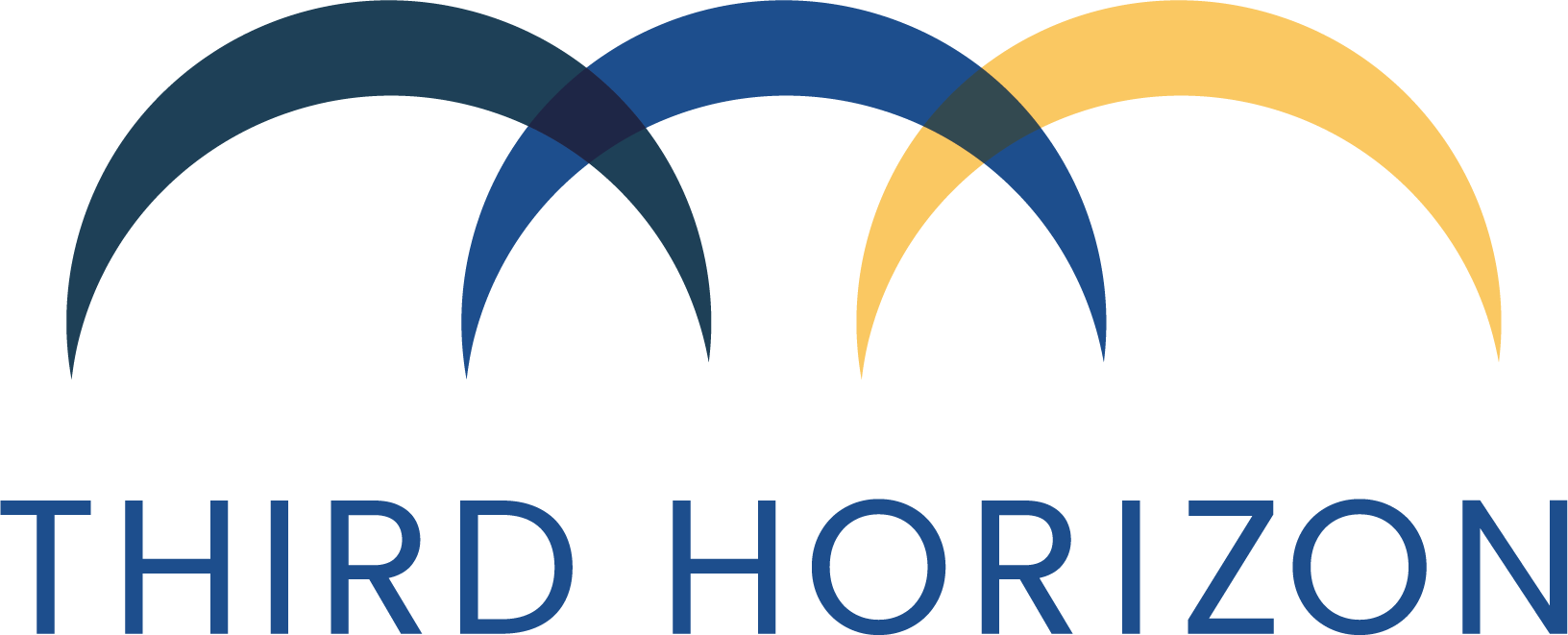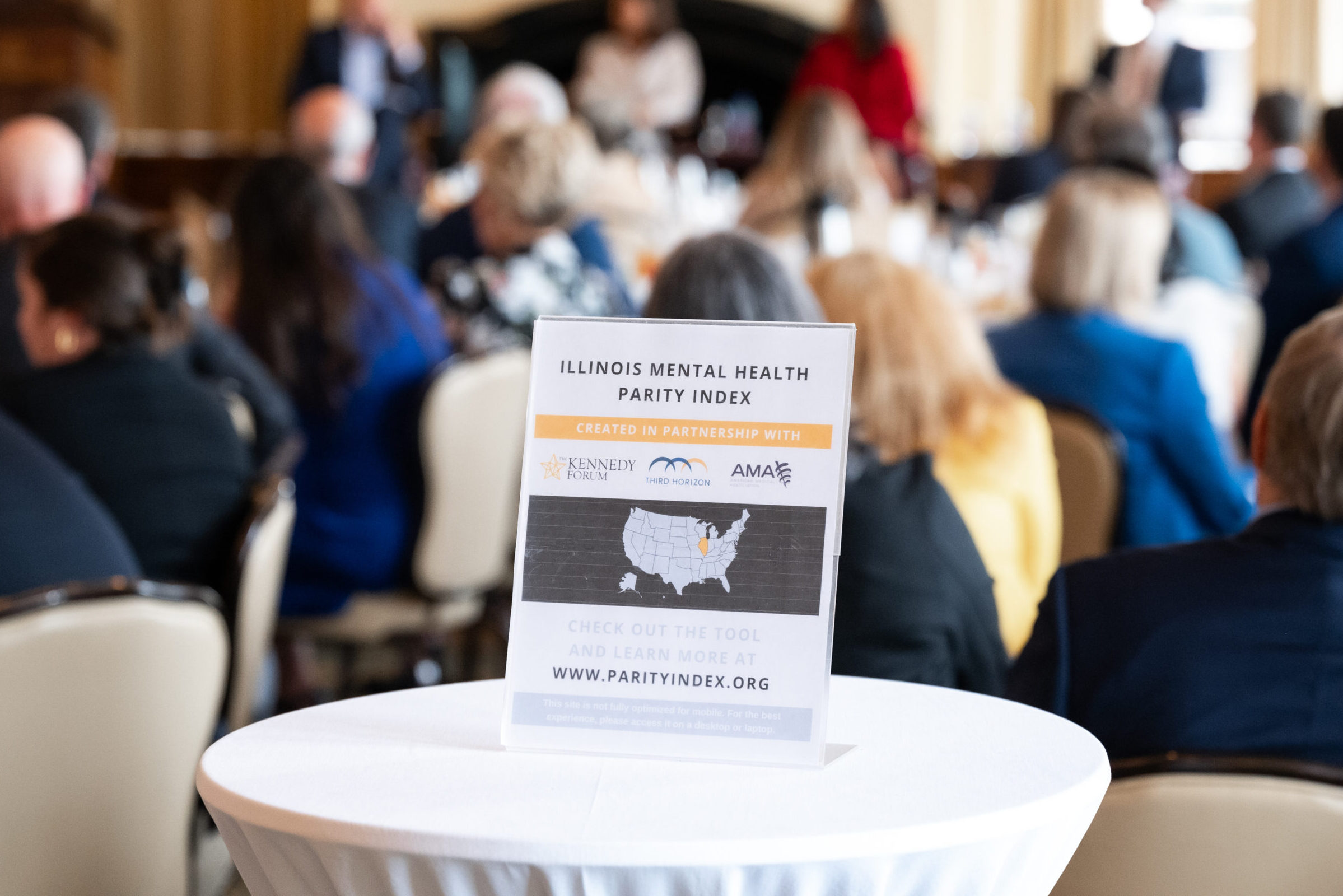On Wednesday, May 28, The Kennedy Forum, Third Horizon, and the American Medical Association hosted a landmark event in Chicago to unveil the Mental Health Parity Index (MHPI), a first-of-its-kind data tool designed to measure how commercial health plans meet mental health and substance use parity requirements. The convening at the Chicago Club brought together policymakers, health economists, clinicians, advocates, and community leaders and marked a turning point in the movement for accountability, equity, and transparency in mental health care.
Event Recap
Rebecca O. Bagley: A Transformative Moment for Mental Health Parity
Rebecca O. Bagley, President and CEO of the Kennedy Forum, opened the event by highlighting the collective effort behind the Mental Health Parity Index.
“We’ve worked diligently—hundreds of hours together—to ensure that we have a product that is very well thought out and can have an impact on the field,” she said.
Patrick J. Kennedy: Elevating Mental Health with Data and Urgency
Patrick J. Kennedy, former congressman and co-founder of the Kennedy Forum, reflected on the historical marginalization of mental health care in the U.S.
“We’ve never paid for mental health the way we’ve paid for the rest of healthcare,” he said, urging an end to the “separate and unequal” treatment paradigm.
Citing the shortage of trained clinicians and the importance of evidence-based care, Kennedy called for systemic reform: “Outrage is understandable, but outrage is not a strategy. We have to come up with very productive and deliverable solutions.”
Dr. Jesse Ehrenfeld: Partnering for Accountability and Access
Dr. Jesse Ehrenfeld, immediate past president of the AMA, brought both professional and personal urgency to the discussion. “My husband keeps asking me, ‘You’re the president of AMA, why can’t you get our family members what they need?’” he shared.
He decried insurance barriers, stating, “Every parity violation is at its core a delay or denial of care and leads to patient harm.” Ehrenfeld celebrated the launch of the Parity Index as a vital tool for accountability: “This is an incredible first-of-its-kind tool that is going to help us understand how commercial health plans are meeting parity requirements.”
Greg Williams: Recovery, Cost Savings, and the Power of Data
Greg Williams, President at Third Horizon and a person in long-term recovery, connected the personal and economic value of mental health investment. “Not once have I been to the ER or admitted inpatient since entering recovery. I’ve contributed over $125,000 back to the risk pool for my insurance,” he shared.
Williams stressed that improved mental health care isn’t about added costs but rather savings: “Mental health utilization lowers total cost of care. It doesn’t add cost like we thought in the ’90s.”
Panel Discussion: Innovations in Mental Health Infrastructure
Moderated by David Smith, Founder and CEO of Third Horizon, the panel brought together public and private sector leaders to explore how the Parity Index can improve service delivery.
Featured Panelists:
- Nathaniel Counts, Chief Policy Officer, Kennedy Forum
- Dr. Tripti Kataria, President-Elect, Illinois State Medical Society
- Dr. Inger Burnett-Ziegler, Chief Behavioral Health Officer, State of Illinois

Nathaniel underscored the breakthrough the Index represents in making parity actionable: “Before this, we had a very qualitative analysis—what does it show on this side of the paper? But now we actually have robust data that can give us insights into what parity could look like on the ground,” he explained. He emphasized that the foundation laid by the 2008 Parity Act and recent federal reports has brought the conversation full circle: “The path still remains the same—the question is, how do we nail down the specifics of transparency data and chart our path forward together?”
Dr. Tripti Kataria spoke candidly about the need to strengthen the mental health workforce pipeline—starting with how physicians are trained: “I got a month of psychiatry in med school—and that was it,” she said, pointing to the lack of integration of behavioral health throughout medical education. She emphasized that building infrastructure means not only increasing payment rates for psychiatrists and other specialists but also preparing future physicians to recognize and respond to behavioral health needs across all specialties.
Dr. Inger Burnett-Ziegler emphasized the widening care gap affecting Illinois’ most vulnerable residents, particularly low-income individuals and communities of color. “There are a lot of people that need care that aren’t getting care. And there are current threats to the care being provided,” she said, referring to ongoing uncertainties around funding and access within the public mental health system.
Closing Reflections: Building the System We Deserve
David Smith concluded the event with a personal story and a challenge to the audience. “There are moments where you reach out your hand in the darkness… and it’s not met,” he said. “We have to do better in this country. And here’s the thing—we are capable of doing better.” Citing $4.9 trillion in annual health spending, he called for realignment: “We have the science, the professionals, the money. It’s the system we need to break.”
Smith described the Index as a “starset” moment and a new dawn for data-driven accountability: “We don’t want to monetize this. We want to democratize it.”
Looking Ahead
The unveiling of the Mental Health Parity Index marks a critical milestone in behavioral health reform. The Index offers a tool for transparency, policy advancement, and service equity, and an invitation for states beyond Illinois to join the movement. The Kennedy Forum, Third Horizon, and AMA remain committed to accelerating change.
Stay tuned for updates as the Parity Index for Illinois and beyond.


